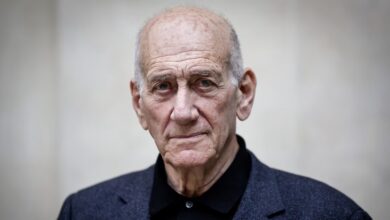Washington–US Secretary of State Hillary Clinton said on Monday that indirect talks between Israel and the Palestinians should be serious and substantive, warning that new Israeli settlements in East Jerusalem and the West Bank were jeopardizing progress and undermining US mediation.
"New construction in East Jerusalem or the West Bank undermines mutual trust and endangers the proximity talks that are the first step toward the full negotiations that both sides want and need," Clinton said in a speech to AIPAC, an influential pro-Israel lobby group, at its annual conference in Washington.
"It exposes daylight between Israel and the United States that others in the region could hope to exploit. And it undermines America’s unique ability to play a role – an essential role, I might add – in the peace process," she said.
Clinton’s speech underscored the Obama administration’s "rock solid" commitment to Israel’s security and its future, but she added that the US was prepared to "tell the truth when it is needed" regarding the situation in the Middle East.
"Guaranteeing Israel’s security is more than a policy position for me. It is a personal commitment that will never waver," Clinton said. "As Israel’s friend, it is our responsibility to give credit when it is due and to tell the truth when it is needed."
The secretary of state added that Israel faces "difficult but necessary choices" on the road to Mideast peace because the status quo with the Palestinians was unsustainable.
Clinton stressed Washington’s view that "the dynamics of demography, ideology, and technology" would eventually force political change in the region.
"There is another path. A path that leads toward security and prosperity for all the people in the region. It will require all parties – including Israel – to make difficult but necessary choices," she said.
Clinton told AIPAC delegates that the United States would continue to demand that Hamas, the Islamist Palestinian group that controls the Gaza Strip, renounce violence and recognize Israel. She also repeated US calls for the release of captured Israeli soldier Gilad Shalit.
She also said the United States would continue to press for direct negotiations that could lead to a two-state solution for Israel and the Palestinians, with US Mideast peace envoy George Mitchell’s efforts to start indirect "proximity" negotiations as an essential foundation.
"These proximity talks are a hopeful first step, and they should be serious and substantive. Ultimately, of course, it will take direct negotiations to work through all the issues and end the conflict," she said.
Prime Minister Benjamin Netanyahu, who arrived in Washington on Monday afternoon, was hoping his visit would mark a fresh chance to repair the frayed personal ties with US President Barack Obama.
Netanyahu’s government two weeks ago approved a plan for further construction in East Jerusalem during Vice President Joe Biden’s visit to the region, a move which angered the Obama administration and led Clinton to deliver a personal rebuke to the Israeli premier.
Netanyahu will also speak to delegates at the conference sponsored by the pro-Israel lobby AIPAC, several hours after Clinton’s address.
Clinton’s speech also highlighted the threat posed by Iran’s nuclear program, which the United States and other Western members of the Security Council are seeking to target with a fresh round of UN sanctions.
A nuclear-armed Iran "would embolden its terrorist clientele and could spark an arms race that could destabilize the region," she was to say.
"That is unacceptable. Unacceptable to the United States. Unacceptable to Israel. And unacceptable to the international community."
The United States is determined to work with its partners in the UN Security Council to show Iran’s leaders that there are consequences to intransigence on the dispute over its nuclear program, which Tehran insists is purely for peaceful purposes, Clinton said.
"Our aim is not incremental sanctions, but sanctions that will bite," Clinton said, adding that it is taking time to reach agreement but that this is "a worthwhile investment for winning the broadest possible support for our efforts.




